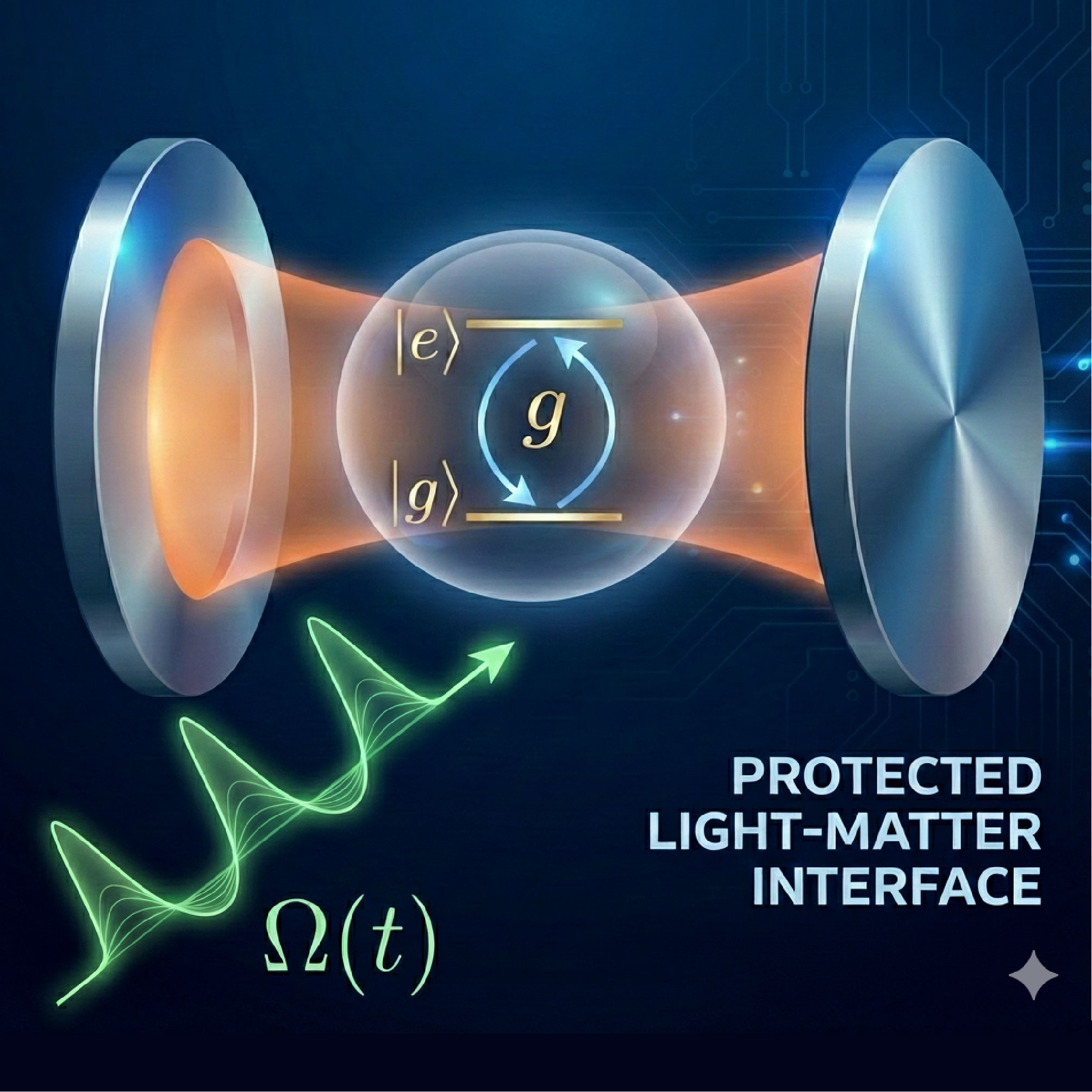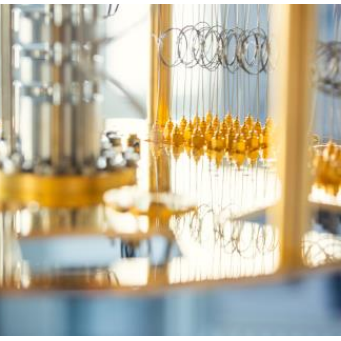In an idle stage, quantum information stored in stationary qubits can be protected against ubiquitous low-frequency noise by periodically flipping the 0 and 1 states with a sequence of fast control pulses—a technique known as 'spin echo.' So far, however, such techniques have not been applicable while a qubit is coupled to a microwave or optical mode, which is necessary to mediate long-range gate operations and to implement quantum communication protocols. In an international collaboration with researchers from Bilbao, Paris, and ETH Zurich, the theory group at WMI has now developed a new control strategy that closes this gap and enables the protection of quantum states during their interaction with a photonic mode. This technique is completely general and can be applied to a wide range of quantum technological applications that rely on coherent interfaces between qubits and photons.
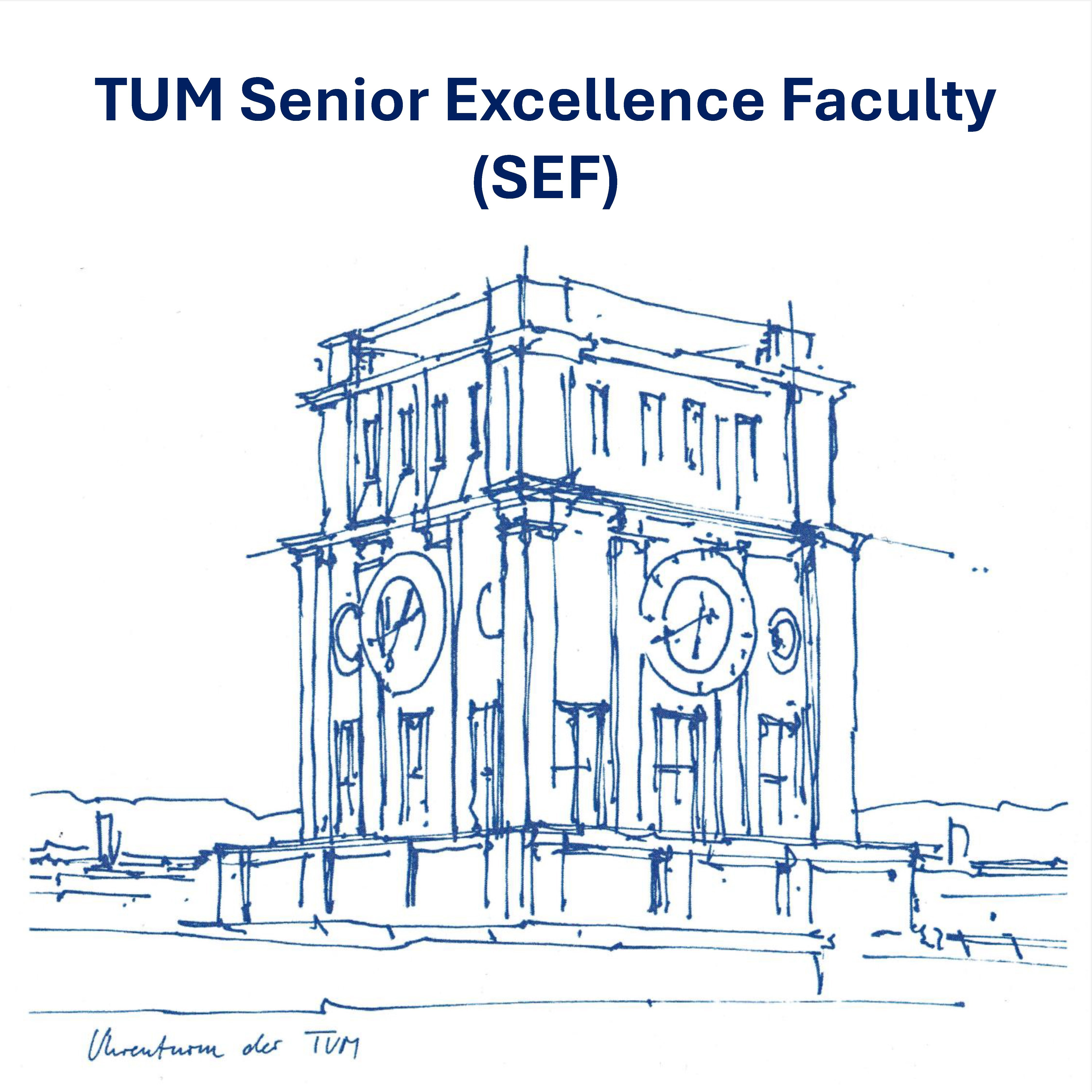
TUM President Thomas Hofmann presented the certificate of appointment as TUM Emeritus of Excellence to Rudolf Gross at the general meeting of the TUM Senior Excellence Faculty (SEF) on 1 December 2025. Since 2007, the Technical University of Munich (TUM) has honored outstanding and dedicated retired professors with the honorary title of TUM Emerita/Emeritus of Excellence (EoE) and involves them in the university's work on a voluntary basis. The TUM Emeriti of Excellence are considered valuable advisors due to their personal independence, extensive experience, and high academic reputation. The interdisciplinary group of TUM Emeriti of Excellence forms the TUM Senior Excellence Faculty (SEF).
Are you looking for an opportunity to realize devices for spin-based or neuromorphic computing or on-chip frequency comb generation? We aim to strengthen our research team at the Walther-Meißner-Institute (WMI) of the Bavarian Academy of Sciences and Humanities (BAdW) and open a PhD researcher position for antiferromagnetic magnonics. For more information, please see the pdf document.
Contact: Matthias Althammer
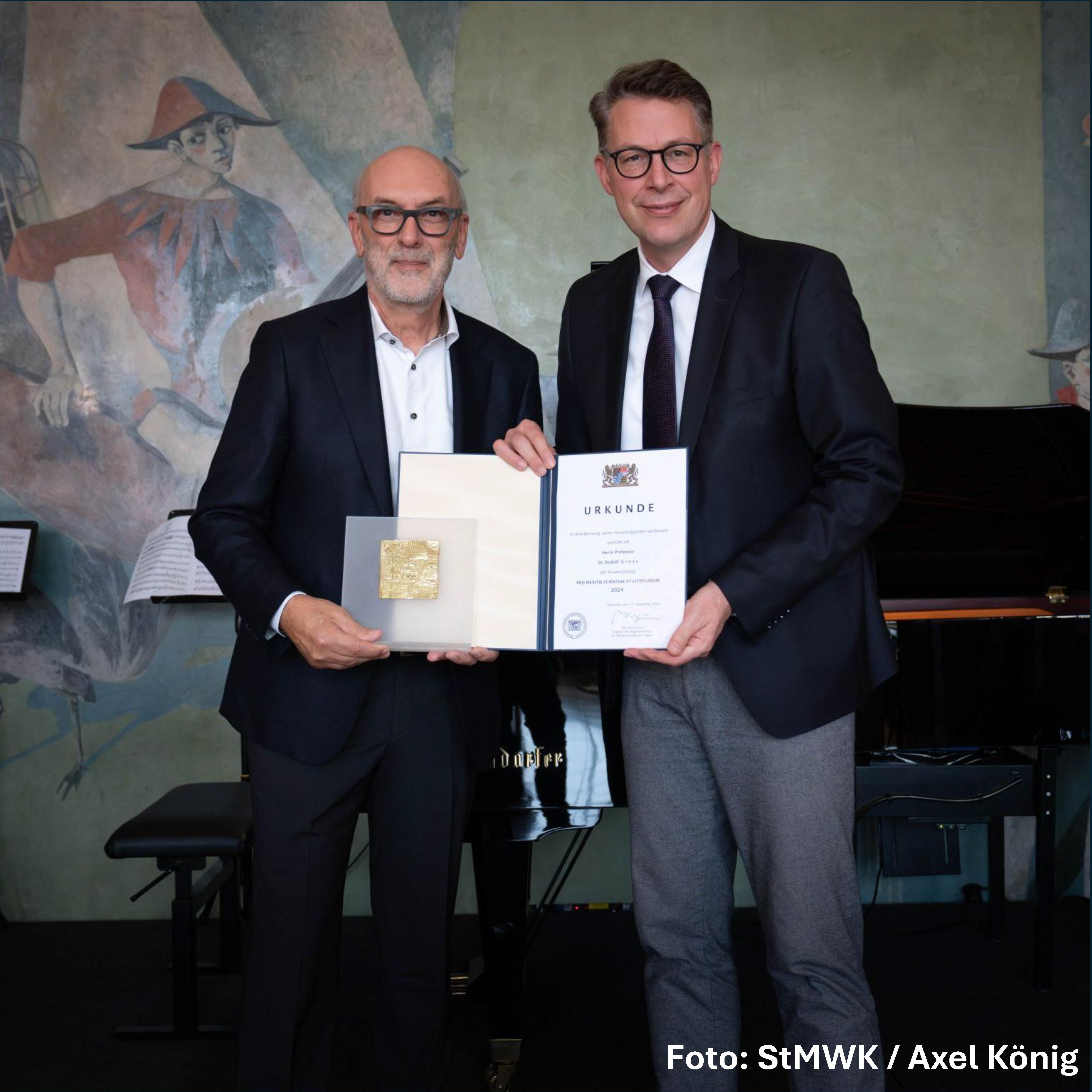
Since 2000, the State Ministry of Science and the Arts has been awarding the PRO MERITIS SCIENTIAE ET LITTERARUM prize to outstanding individuals for their services to science and the arts. On October 28, 2025, Minister of State Blume presented this award to Rudolf Gross, the long-standing director of WMI. "He laid the foundations for the institute's international leadership position. With his deep technical expertise and strategic foresight, he has made the Bavarian quantum ecosystem what it is today – one of Europe's most important centers for quantum research – through the first Collaborative Research Center on solid-state-based quantum information processing, the two clusters of excellence NIM and MCQST, and the Munich Quantum Valley", Minister Blume emphasized.
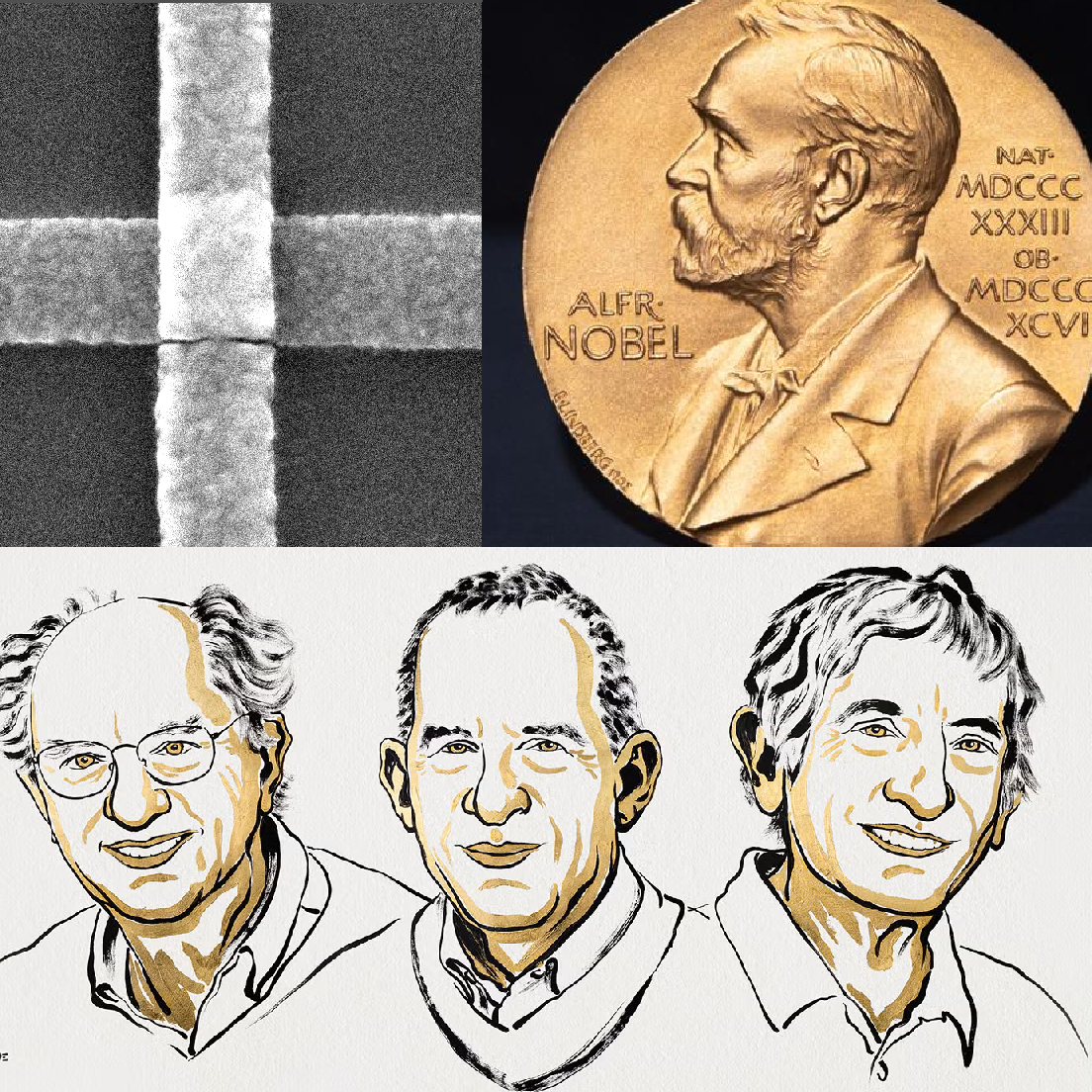
The Nobel Prize in Physics in the IYQ 2025 honors the achievements of John Clarke, Michel H. Devoret, and John M. Martinis in the field of macroscopic quantum phenomena and celebrates the centenary of quantum mechanics. The realization of quantized electrical circuits has enabled, among other things, the development of superconducting qubits, a key technology for quantum computers. Typically, quantum effects such as tunneling through classically insurmountable barriers can only be observed on extremely small scales. This makes states such as superpositions possible, in which microscopic particles can exist on both sides of a barrier. In the 1970s, the award-winning researchers at the University of California, Berkeley, successfully demonstrated this tunneling effect on macroscopic scales and created superpositions based on tunneling through Josephson junctions. Here, at the Walther Meißner Institute, researchers follow the footsteps of the Nobel laureates and further develop superconducting qubits.
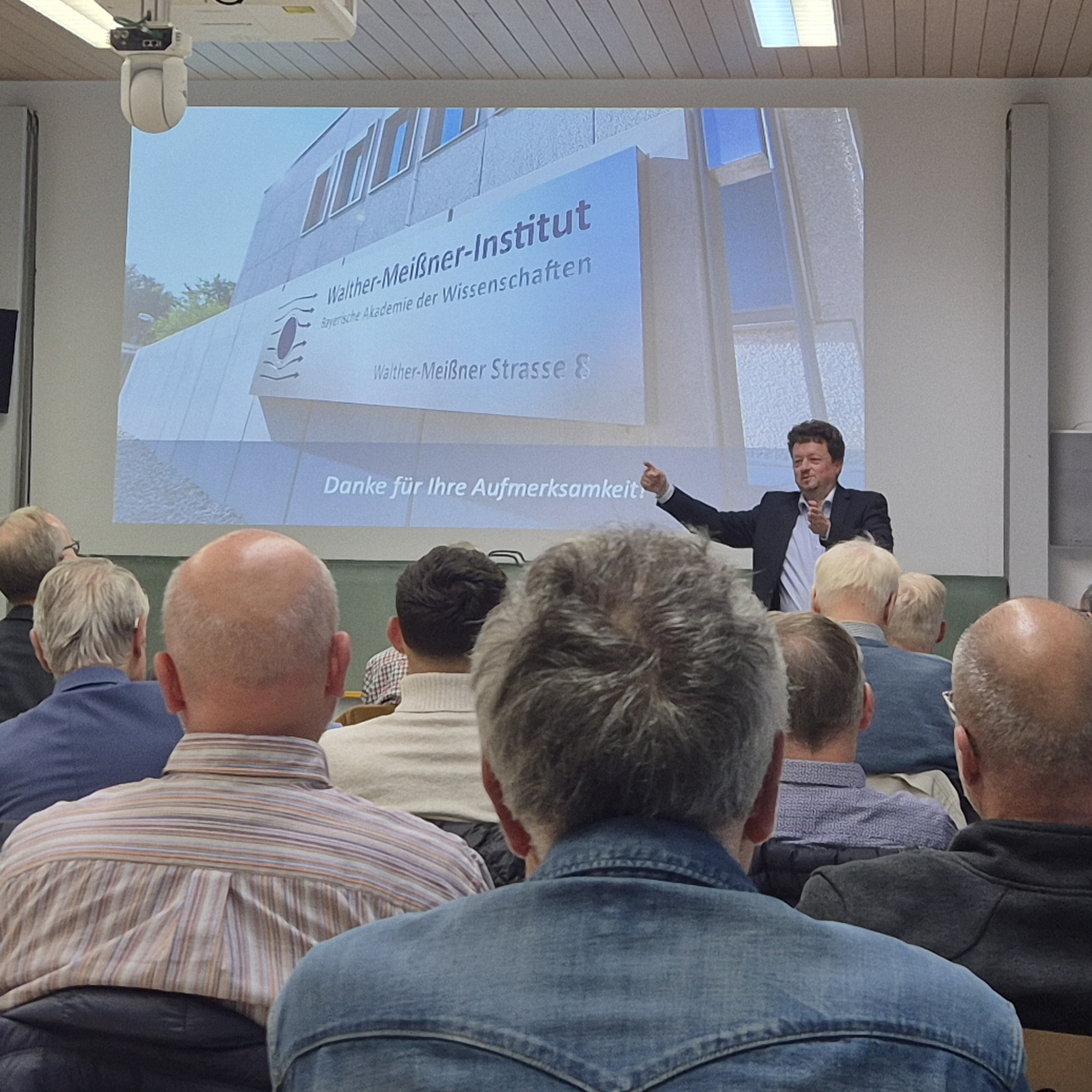
In the evening of Monday, 06.10.2025, WMI opened its doors to the general public in the context of the 2025 International Year of Quantum Science and Technology (IYQ) and the outreach activities of the Munich Quantum Valley.
Forty-seven participants visited our laboratories to learn about superconducting qubits, nanofabrication, spin systems, and quantum communication. The event began with a presentation by our director, Peter Rabl, who shared the history behind physics at the lowest temperatures.

